RESEARCH & SCIENCE
 METEOROLOGY
METEOROLOGYHunting down clouds in a spy jet
Two of the most important factors influencing climate events are still a mystery: The clouds and the aerosols in the Earth's upper atmosphere. Professor Dr. Stephan Borrmann is tracking them both down. A new, large-scale project is ready to start in the skies above India. The European Union is providing EUR 2.75 million in financial support.
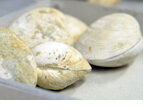 GEOSCIENCES
GEOSCIENCESMollusks chronicle the climate
Mammoths and mussels, dragonflies and corals: the Paleontology Collection at the Institute of Geosciences at Johannes Gutenberg University Mainz (JGU) is incredibly diverse. What's missing is a proper curator. Because the million or so s pecimens in the collection are too much for anyone to manage on a part-time basis.
 HYMNBOOK COLLECTION
HYMNBOOK COLLECTION4,000 litmus tests from history
The Hymnbook Archive of Johannes Gutenberg University Mainz (JGU) holds perhaps the world's most important collection of utilitarian Christian literature, making it an essential resource for scholars. Hymnbooks reflect history in a unique way. Professor Dr. Hermann Kurzke invites us to take a tour through the centuries.
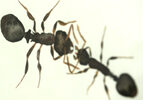 EVOLUTIONARY BIOLOGY
EVOLUTIONARY BIOLOGYWhen ants stir up a rebellion
It has long been known that certain ants keep other ants as slaves. However, Professor Dr. Susanne Foitzik of the Institute of Zoology at Johannes Gutenberg University Mainz (JGU) has discovered that these slaves have what it takes to rebel. And she can explain how this ability has developed during the course of evolution.
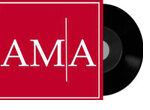 AFRICAN MUSIC COLLECTION
AFRICAN MUSIC COLLECTIONAfrican music from the basement
There are more than 10,000 recordings stored in the Department of Anthropology and African Studies at Johannes Gutenberg University Mainz (JGU). The African Music Archives (AMA) represents a unique treasure trove of African music. There are old shellac disks from Tanzania, LPs from Mali, and the latest CDs from Senegal. Archive Director Dr. Hauke Dorsch invites visitors on a tour of this diverse aural landscape.
 US PRESIDENTIAL ELECTION
US PRESIDENTIAL ELECTIONMost Germans would vote for Obama
Exactly one week before the final decision is reached in the US presidential election, the relative chances of success of Barack Obama and his Republication opponent, Mitt Romney, were discussed in the largest lecture hall on the campus of Johannes Gutenberg University Mainz (JGU). Germany would clearly vote for Obama – but what about the Americans?
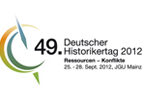 HISTORY
HISTORYOf resources, conflicts, and the view of Europe
3,500 participants, 400 speakers, 99 dedicated helpers on site and two years' preparation time: the 49th German Historikertag (German Historians Conference) at Johannes Gutenberg University Mainz (JGU) turned out to be a major event. For four days, one of the largest European conferences for humanities scholars focused on the topic of "Resources – Conflicts" and much more.
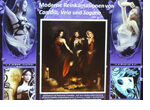 IMAGINES III
IMAGINES IIIAncient mythology conquers modern culture
Dr. Irene Berti has no doubts: "The echoes of antiquity are everywhere as modern culture has stolen a lot from it. The past is still present." The scholars of the IMAGINES research network made this their focus at the "Magic and the Supernatural from the Ancient World" conference at Johannes Gutenberg University Mainz (JGU), where the subjects included sorceresses and zombies, mythical creatures and superheroes.
 CLIMATE
CLIMATEFinnish trees tell the story of 2,000 years of climate history
Over the past 2,000 years, the climate in northern Europe has cooled more than previously assumed. This is the conclusion drawn by an international group of researchers following the examination of the growth rings of fossilized pines from Finnish Lapland. Scientists from Johannes Gutenberg University Mainz (JGU) also took part in this major project, most notably the climate geographer Professor Dr. Jan Esper.
 EURO CRISIS
EURO CRISISDon’t panic, we’re still on course
The euro crisis is on everyone's lips and one disaster has hardly had to time to dissipate before the next arrives. Germany is putting up billions, Greece is still sinking despite bailout fund, Spain and Italy are teetering on the edge of the abyss, the financial markets are fluctuating between nervousness and hysteria. Mainz economist Professor Dr. Philipp Harms tries to remain objective in view of the situation.
